Social cognition is a topic within psychology that focuses on how people process, store, and apply information about other people and social situations. It focuses on the role that cognitive processes play in social interactions.

Terrence William Deacon is an American neuroanthropologist. He taught at Harvard for eight years, relocated to Boston University in 1992, and is currently Professor of Anthropology and member of the Cognitive Science Faculty at the University of California, Berkeley.
Mindfulness is the cognitive skill, usually developed through meditation, of sustaining meta-attention of the contents of one's own mind in the present moment. Mindfulness derives from sati, a significant element of Hindu and Buddhist traditions, and is based on Zen, Vipassanā, and Tibetan meditation techniques. Though definitions and techniques of mindfulness are wide-ranging, Buddhist traditions describe what constitutes mindfulness such as how past, present and future moments arise and cease as momentary sense impressions and mental phenomena. Individuals who have contributed to the popularity of mindfulness in the modern Western context include Thích Nhất Hạnh, Joseph Goldstein, Herbert Benson, Jon Kabat-Zinn, and Richard J. Davidson.
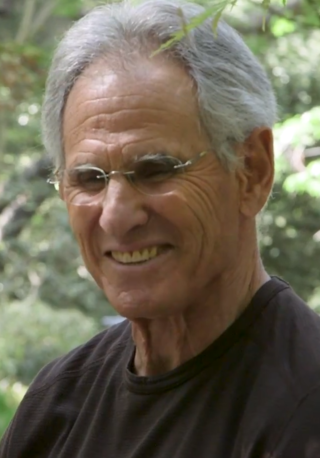
Jon Kabat-Zinn is an American professor emeritus of medicine and the creator of the 'Stress Reduction Clinic' and the 'Center for Mindfulness in Medicine, Health Care, and Society' at the University of Massachusetts Medical School. Kabat-Zinn was a student of Zen Buddhist teachers such as Philip Kapleau, Thich Nhat Hanh, and Seung Sahn, and a founding member of Cambridge Zen Center. His practice of hatha yoga, Vipassanā and appreciation of the teachings of Soto Zen and Advaita Vedanta led him to integrate their teachings with scientific findings. He teaches mindfulness, which he says can help people cope with stress, anxiety, pain, and illness. The stress reduction program created by Kabat-Zinn, mindfulness-based stress reduction (MBSR), is offered by medical centers, hospitals, and health maintenance organizations, and is described in his book Full Catastrophe Living.
Mindfulness-based cognitive therapy (MBCT) is an approach to psychotherapy that uses cognitive behavioral therapy (CBT) methods in conjunction with mindfulness meditative practices and similar psychological strategies. The origins to its conception and creation can be traced back to the traditional approaches from East Asian formative and functional medicine, philosophy and spirituality, birthed from the basic underlying tenets from classical Taoist, Buddhist and Traditional Chinese medical texts, doctrine and teachings.

Allan N. Schore is an American psychologist and researcher in the field of neuropsychology.
The developmental needs meeting strategy (DNMS) is a psychotherapy approach developed by Shirley Jean Schmidt. It is designed to treat adults with psychological trauma wounds and with attachment wounds. The DNMS is an ego state therapy based on the assumption that the degree to which developmental needs were not adequately met is the degree to which a client may be stuck in childhood. This model aims to identify ego states that are stuck in the past and help them get unstuck by remediating those unmet developmental needs. The processing starts with the DNMS therapist guiding a patient to mobilize three internal Resource ego states: a Nurturing Adult Self, a Protective Adult Self, and a Spiritual Core Self. The therapist then guides these three Resources to gently help wounded child ego states get unstuck from the past by meeting their unmet developmental needs, helping them process through painful emotions, and by establishing an emotional bond. The relationship wounded child parts have with these Resources is considered the primary agent for change.

Stephen W. Porges is an American psychologist and neuroscientist. He is the Professor of Psychiatry at the University of North Carolina at Chapel Hill. Porges is also currently Director of the Kinsey Institute Traumatic Stress Research Consortium at Indiana University Bloomington, which studies trauma.
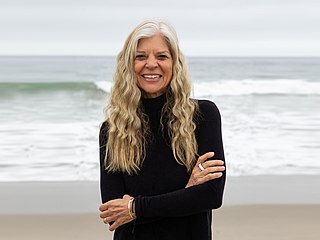
Susan Smalley is an American behavioral geneticist, writer and activist. The co-author of Fully Present: The Science, Art, and Practice of Mindfulness, she is the founder of the UCLA Mindful Awareness Research Center at the Jane and Terry Semel Institute for Neuroscience and Human Behavior (MARC), and professor emerita in the department of psychiatry and biobehavioral sciences at UCLA. Her research centers on the genetic basis of childhood-onset behavior disorders, such as ADHD, and the cognitive and emotional impact of mindfulness meditation on health and wellbeing. She has published more than 100 peer-reviewed papers and lectured globally on the genetics of human behavior and the science of mindfulness.
Limbic resonance is the idea that the capacity for sharing deep emotional states arises from the limbic system of the brain. These states include the dopamine circuit-promoted feelings of empathic harmony, and the norepinephrine circuit-originated emotional states of fear, anxiety and anger.
Louis John Cozolino is an American psychologist and professor of psychology at Pepperdine University. He holds degrees in philosophy from the State University of New York at Stony Brook, theology from Harvard University and a Ph.D. in clinical psychology from UCLA. He has conducted empirical research in schizophrenia, the long-term impact of stress, and child abuse. Cozolino has published numerous articles, several books, and maintains a clinical and consulting practice in Los Angeles.
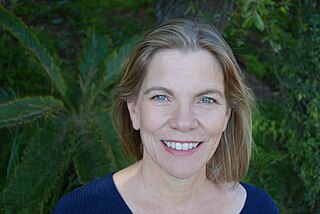
Susan Kaiser Greenland is an American author and teacher of mindfulness and meditation, practicing a state of present-moment awareness to develop overall attentiveness and social/emotional skills. Susan played a foundational role in making mindfulness practices developmentally appropriate for young people, and with her first book The Mindful Child she helped pioneer activity-based mindfulness. This technique is now practiced in American schools throughout the country to help children learn how to reduce and alleviate their stress levels.
Neurological reparative therapy (NRT) is a new model of treatment synthesized from a compilation of literature and research on how to better the lives of individuals who have a wide range of mental, emotional, and behavioral disturbances – particularly children and adolescents. Although the term "neurological reparative therapy" is new, the foundation of this model is not.
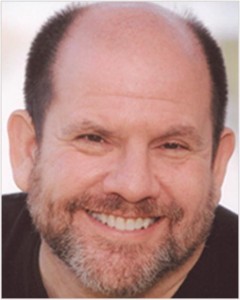
Stan Tatkin, PsyD, MFT, is a clinician, researcher, teacher, and developer of A Psychobiological Approach to Couple Therapy (PACT).

David S. Shannahoff-Khalsa is a researcher in mind-body dynamics. He has published widely in scientific journals and regularly presents full day courses at the American Psychiatric Association and other national and international conferences. Shannahoff-Khalsa has also published three books outlining his years of experience using Kundalini Yoga meditation as taught by Yogi Bhajan to understand and treat psychiatric disorders.
The self-transforming brain refers to the ability of the self to consciously use mental activity to change/modify the brain's neural network in order to experience life with more happiness and fulfillment. This capacity of using awareness to do so is based on the assumption that the brain and the mind are closely connected, that one does not change without the other. The phrase "I think therefore I am" is not only a famous proclamation in the eyes of neuroscience. It has been evidenced that mental activities such as fleeting thoughts and feelings can create new neural structures in the brain and thus shape a person's reality. Therefore, it is possible to make use of the brain's neuroplasticity to re-wire or change one's brain and life by consciously activating happy, tranquil and loving mental states.
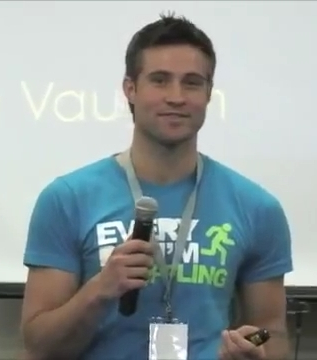
Don Vaughn is an American neuroscientist and science communicator. He is a postdoctoral scholar at UCLA's Semel Institute for Neuroscience and Behavior and adjunct faculty at Santa Clara University.
Dean Vincent Buonomano is an American neuroscientist and author. He is a professor at UCLA whose research focuses on neurocomputation and how the brain tells time. Buonomano has been described as one of the "first neuroscientists to begin to ask how the human brain encodes time" and has been published in various scientific journals. He is the author of two books, Brain Bugs: How the Brain's Flaws Shape our Lives and Your Brain is a Time Machine: The Neuroscience and Physics of Time. Buonomano's first book Brain Bugs examines the human brain's functional strengths and weaknesses, ultimately attributing some of the brain's 'bugs' to evolution.
Interpersonal neurobiology (IPNB) or relational neurobiology is an interdisciplinary framework that was developed in the 1990s by Daniel J. Siegel, who sought to bring together scientific disciplines to demonstrate how the mind, brain, and relationships integrate. IPNB views the mind as a process that regulates the flow of energy and information through its neurocircuitry, which is then shared and regulated between people through engagement, connection, and communication. Drawing on systems theory, Siegel proposed that these processes within interpersonal relationships can shape nervous system maturation. Siegel claimed that the mind has an irreducible quality which informs this approach.
Trauma-informed care (TIC) or Trauma-and violence-informed care (TVIC), is a framework for relating to and helping people who have experienced negative consequences after exposure to dangerous experiences. There is no one single TIC framework, or model, and some go by slightly different names, including Trauma- and violence-Informed Care (TVIC). They incorporate a number of perspectives, principles and skills. TIC frameworks can be applied in many contexts including medicine, mental health, law, education, architecture, addiction, gender, culture, and interpersonal relationships. They can be applied by individuals and organizations.









